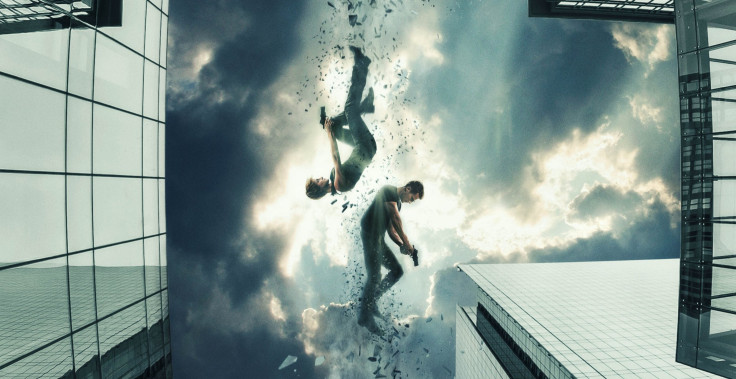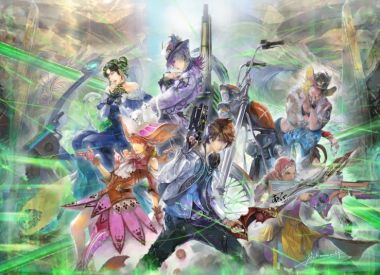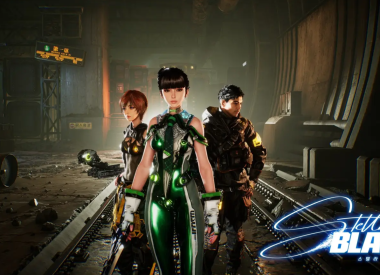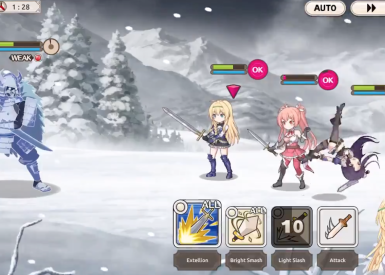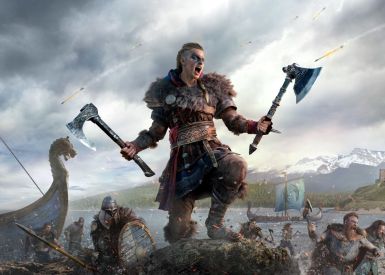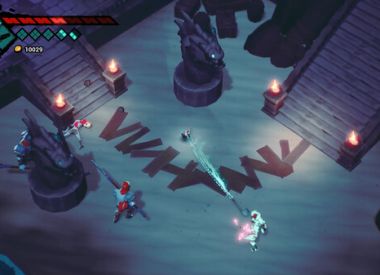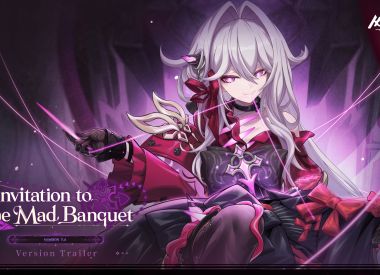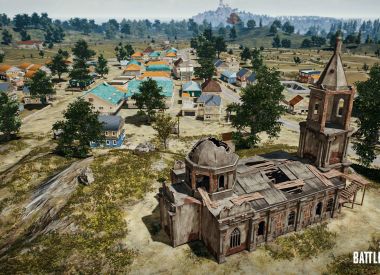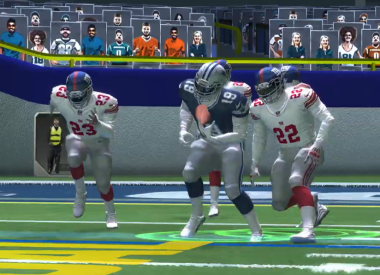There is a scene in The Divergent Series: Insurgent that feels just like a high school play, as the population of Candor judge Four and Tris Prior’s testimony concerning the attack on Abnegation at the end of the previous movie, Divergent. At the set’s center is a rickety, lit up future-gazebo, with mirrors and no possible purpose. Other than an immense Candor faction logo the stage is dark, hemmed in by the population of Candor lined up in choir rows.
Like the end of Our Town, were it rewritten by high-schoolers who read the Wikipedia page, a call and response begins. Tris (Shailene Woodley), the hero of The Divergent Series confesses, the assembled Candor citizens respond in fortune cookie slogans. “The truth will set you free,” they say. “Thank you for your candor,” they say.
That probably makes The Divergent Series: Insurgent sound innocent, perhaps even a bit naive and sweet. You’re picturing the wrong high school. Enter MONEY Stage Right. That’s right, The Divergent Series: Insurgent is put on by those private school assholes.
The Divergent Series: Insurgent Trailer
The Divergent Series doesn’t bother settling for any single set of science fiction tropes, preferring to throw them all together. Divergent and its sequel, Insurgent, are set in a Chicago that’s both post-apocalyptic and a futuristic, totalitarian dystopia. Citizens are divided into five factions: farming hippies (Amity), bureaucrats (Erudite), gun-jocks (Dauntless), and bureaucrat hippies (Abnegation). After the events of Divergent, The Divergent Series: Insurgent ditches the bureaucrat hippies (to death) in favor of a totalitarian state run by Erudite Jeanine (Kate Winslet). In addition to the five factions you’ve got your Factionless — who are all too useless to fit a role and seem to represent 50 percent of the population — and your Divergent: genetic freaks who have somehow managed to evolve five separate personality traits that make them almost as good at living and breathing as a normal human circa 2015.
In The Divergent Series: Insurgent the Divergent rebels Tris and Four gather an army to overthrow the Erudite government in their literal ivory tower. Meanwhile Jeanine and the Erudites really want to open a box. By the end of The Divergent Series: Insurgent both goals are accomplished after a nearly two hour runtime of contrived complications.
The real problems with The Divergent Series: Insurgent are in the script, but it’s worth noting how displeasing Insurgent is aesthetically. Modern moviegoers have adopted a kind of “end of history” mentality of special effects, where it’s now widely assumed that money can buy reality for even the most outlandish settings. The Divergent Series: Insurgent feels constructed to rebut.
The design aesthetic learns toward the monumental, with Erudite in their skyscraper and the Factionless in their immense rundown train station, but flops in every detail. From a set straight out of a Crate & Barrel rustic cabin demo to computer displays that look like LCARS crossed with last decade’s Apple products, The Divergent Series: Insurgent looks like someone forgot the concept art stage of preproduction. But the greatest lows in Insurgent design are to be found in the costuming department. From the sub-Zardoz Amity bandanna-wear to the zoot suit Candor, The Divergent Series: Insurgent has some of the most distracting and lazy costuming ever seen in a mainstream movie. Once you’re bored with watching the leads go through plot contortions to get to that big Insurgent box-opening finale you can entertain yourself with gawking at the clothes worn by the slack-faced extras. All that said, there’s something strangely gratifying about a movie with such a lazy plot failing to elevate itself with production design.
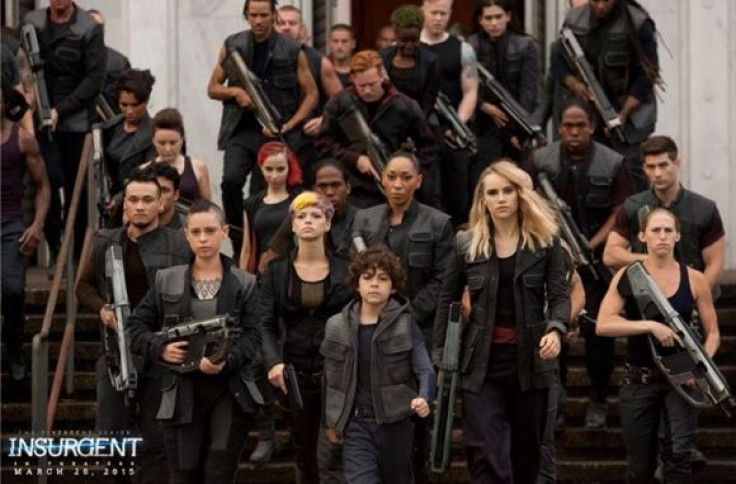
About that The Divergent Series: Insurgent plot…
Much of Insurgent feels ephemeral, as if the character’s motives are always slipping away as you watch. At first Tris, Four, and Caleb are in search of an army. For reasons of Four (Theo James) family drama they turn down the aid of the Factionless, headed by Four’s mother (Naomi Watts). Until an hour passes and then they don’t turn it down any longer. It is indeed the Factionless army that storms Erudite headquarters in the end. This is pretty typical of The Divergent Series: Insurgent. Everything that happens feels like a stall. Once Tris’ army is established she opts to turn herself in because of a silly little gizmo that the Factionless manage to thwart in a single day, offscreen.
The Divergent Series: Insurgent also suffers for being “political” in that peculiar, unmoored way typical of War on Terror era American movies. But unlike movies like Captain America: Winter Soldier, with its gloss of drone warfare political realities, The Divergent Series: Insurgent has stripped “politics” down to a nub, leaving behind the distinct feeling that whoever came up with The Divergent Series government (presumably Divergent author Veronica Roth, though it seems unfair to pin the Insurgent movie on her) was raised on an island and had never witnessed an actual society.
For a Big Brother dystopia — complete with wall-sized TV screens blaring out the commandments of Dear Leader Jeanine — The Divergent Series: Insurgent Erudite government hasn’t seemed to figure out this whole surveillance state thing. In one particularly laughable scene Tris, the most wanted person in all of Divergistan, walks straight through the city’s center and isn’t captured or even noticed until she literally walks up the ramp to the bad guys’ lair. Jeanine, the autocratic ruler of The Divergent Series: Insurgent, surrounds herself with a handful of guards and two people she knows to be traitors. It’s not that The Divergent Series: Insurgent needs to comment on the NSA or Guantanamo or whatever, but that the Insurgent political systems’ complete detachment from anything resembling a working society gives the whole affair an unreal quality that’s impossible to shake.
Had The Divergent Series: Insurgent had great characters much of the plot puffery could be forgiven. Too bad everyone is gormless. No one seems to have any consciousness, but just proceeds forward, occasionally mumbling about all the emotions they feel. Humans aren’t human in Insurgent. Instead they babble stupid slogans like “Go with happiness” (the clip is misleading since Miles Teller is the only fun character in the whole movie). The performances are uniformly bland, with that kind of sci-fi lack of vocal inflection that tries to convey a different society but ends up feeling like someone failed to make a choice. The best that could be said of Shailene Woodley is that she tries hard, though Tris only has two modes: weeping self-doubt and fight sequence.
The Divergent Series: Insurgent “Go With Happiness”
The writers of The Divergent Series: Insurgent could perhaps sense there’s something incomplete in their characters’ emotional arcs, so at the climax, in order to open that damn box, they literalize every faction emotion, taking the concept of “show don’t tell” way beyond the breaking point. The final major action scene in The Divergent Series: Insurgent is Tris literally battling her manifested self-doubt.
The Divergent Series: Insurgent doesn’t stray far from The Hunger Games template of YA movie adaptations. It’s basically an adult story of war, dumbed down for pre-teens, then dumbed up with some violence and sex for teens. Still, it’s hard to imagine even The Divergent Series’ target audience producing that much enthusiasm for Insurgent.

